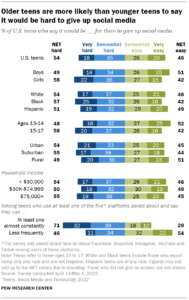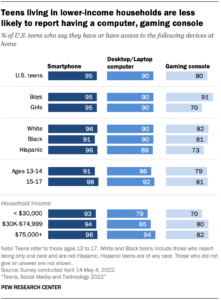Youths now under 20
“In many ways, we live far better lives than even the most powerful kings throughout history.” JG
We enjoy instant access to incredible conveniences that were unimaginable just a few decades ago, particularly in America. Our senses engage with a plethora of exciting choices and options.
Yet our children, known as the Alpha Generation (0-10) and most of Generation Z (11-26), are more focused on their Digital World. They reside in their Virtual World of constant technological connections. They expect instant gratification having grown up with expanded options. Television choices, on-demand programming, instant worldwide communication through phones, texts, VoIP. Various apps such as Instagram, Snapchat and TikTok, and WhatsApp, all available at their fingertips.
However, alongside these technological advancements, we also face new challenges.


Engaging in games and apps can have benefits such as sharpening young minds, enhancing quick decision-making skills, and making multitasking less challenging. Newly found confidence can spill over into areas where practical experience may be lacking.
Furthermore, the emergence of Artificial Intelligence (AI) has significantly impacted the speed and ease with which creative works can be generated. Just imagine the possibilities if brilliant minds like Shakespeare, Mozart, or Einstein had access to today’s technology. The potential is vast, limited only by our imagination. (We shall explore the philosophical and practical implications of AI in our next website, an in depth look at Ai, Blockchain, and the coming AGI and ASI. This is set aside for now for priority sake.)
Undoubtedly, social media, apps, and games have become integral parts of our youth’s daily lives.
They are often as vital to them as food and drink are to us. Technology possesses an undeniable allure and can even be addictive. It offers gratification, usefulness, and at times, therapeutic benefits. Physiologically, it triggers the release of dopamine and oxytocin in our brains, contributing to its addictive qualities. It can be mesmerizing, where having balance in their lives past technology isn't even a fleeting thought.
Our children have grown up under immense pressures from the virtual world, often at the expense of their emotional and physical well-being. This brings us to the darker side of technology, the reason I feel compelled to inform as many people as possible about its potentially tragic pitfalls, with the hope of averting them.
While working on the content for this website, I realized that it is akin to peeling back the layers of an onion. With each layer, I uncovered a mix of darkness, some light, and crucial information that parents, grandparents, and guardians should be aware of.
As we peel back the layers, it is essential to acknowledge both the positive and negative aspects of technology. We stand at a precipice. Our youth may possess extensive knowledge about technology, surpassing our own understanding, yet a lack of real-life experiences can leave them ill-prepared to navigate the future. While technology has its benefits, it is equally crucial to expose our children to a diverse range of experiences beyond screens. These experiences will shape their character, broaden their horizons, and equip them with the skills necessary for a well-rounded future.